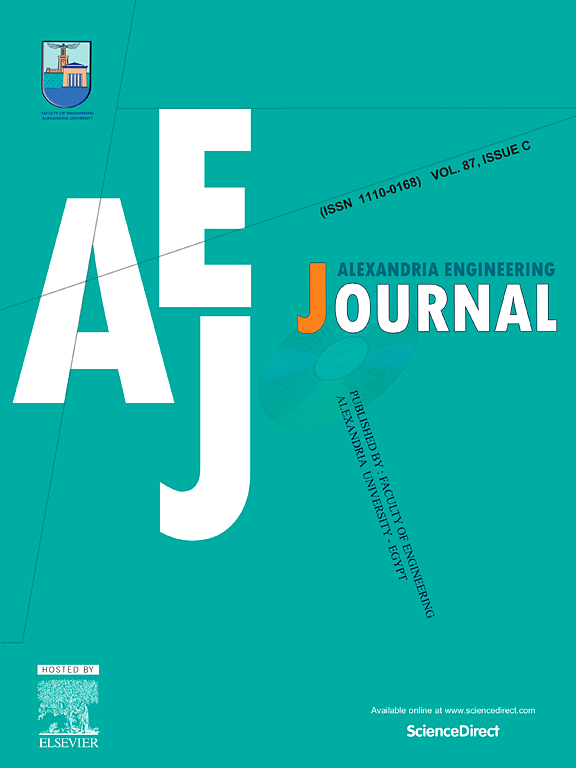An improved and decentralized/distributed healthcare framework for disabled people through AI models
IF 6.2
2区 工程技术
Q1 ENGINEERING, MULTIDISCIPLINARY
引用次数: 0
Abstract
Access to adequate healthcare is critical for everyone, but people with disabilities often face considerable challenges in receiving reliable and timely medical treatment. The Vision 2030 plan in Saudi Arabia intends to change the healthcare system by incorporating new technologies that increase accessibility, efficiency, and service delivery. However, current healthcare systems continue to suffer from delays, inefficient data processing, and accessibility concerns, especially for the visually impaired. This study proposes a more decentralized healthcare system that uses artificial intelligence (AI) and machine learning (ML) models to improve healthcare services for individuals with disabilities. The system achieves real-time data processing, reduces latency, and enhances decision-making accuracy by combining federated learning and zero-shot architectures. Furthermore, smart technologies such as the Internet of Things (IoT) and natural language processing (NLP) provide seamless data collection and analysis, allowing healthcare practitioners to provide prompt and personalized treatment. The suggested solution solves crucial issues such as inefficiencies in data processing, delays in obtaining medical information, and limits in current healthcare processes. This platform improves impaired people’s freedom and mobility by delivering remote healthcare solutions using AI-powered diagnostics and real-time monitoring. This study contributes to a more inclusive and efficient healthcare system in Saudi Arabia by bridging the gap between technology and accessibility, which aligns with the Vision 2030 objective of providing fair healthcare services to everyone.
通过人工智能模型改进残疾人分散/分布式医疗保健框架
获得适当的医疗保健对每个人都至关重要,但残疾人在获得可靠和及时的医疗方面往往面临相当大的挑战。沙特阿拉伯的2030年愿景计划打算通过采用新技术来改变医疗保健系统,提高可及性、效率和服务提供。然而,当前的医疗保健系统仍然存在延迟、数据处理效率低下和可访问性问题,尤其是对视障人士而言。本研究提出了一个更加分散的医疗保健系统,该系统使用人工智能(AI)和机器学习(ML)模型来改善残疾人的医疗保健服务。该系统通过结合联邦学习和零射击架构,实现了实时数据处理,降低了延迟,提高了决策精度。此外,物联网(IoT)和自然语言处理(NLP)等智能技术提供了无缝的数据收集和分析,使医疗保健从业者能够提供及时和个性化的治疗。建议的解决方案解决了数据处理效率低下、获取医疗信息的延迟以及当前医疗保健流程中的限制等关键问题。该平台通过提供使用人工智能诊断和实时监控的远程医疗解决方案,改善了残疾人的自由和行动能力。这项研究通过弥合技术和可及性之间的差距,有助于沙特阿拉伯建立一个更具包容性和效率的医疗保健系统,这符合2030年愿景的目标,即为每个人提供公平的医疗保健服务。
本文章由计算机程序翻译,如有差异,请以英文原文为准。
求助全文
约1分钟内获得全文
求助全文
来源期刊

alexandria engineering journal
Engineering-General Engineering
CiteScore
11.20
自引率
4.40%
发文量
1015
审稿时长
43 days
期刊介绍:
Alexandria Engineering Journal is an international journal devoted to publishing high quality papers in the field of engineering and applied science. Alexandria Engineering Journal is cited in the Engineering Information Services (EIS) and the Chemical Abstracts (CA). The papers published in Alexandria Engineering Journal are grouped into five sections, according to the following classification:
• Mechanical, Production, Marine and Textile Engineering
• Electrical Engineering, Computer Science and Nuclear Engineering
• Civil and Architecture Engineering
• Chemical Engineering and Applied Sciences
• Environmental Engineering
 求助内容:
求助内容: 应助结果提醒方式:
应助结果提醒方式:


